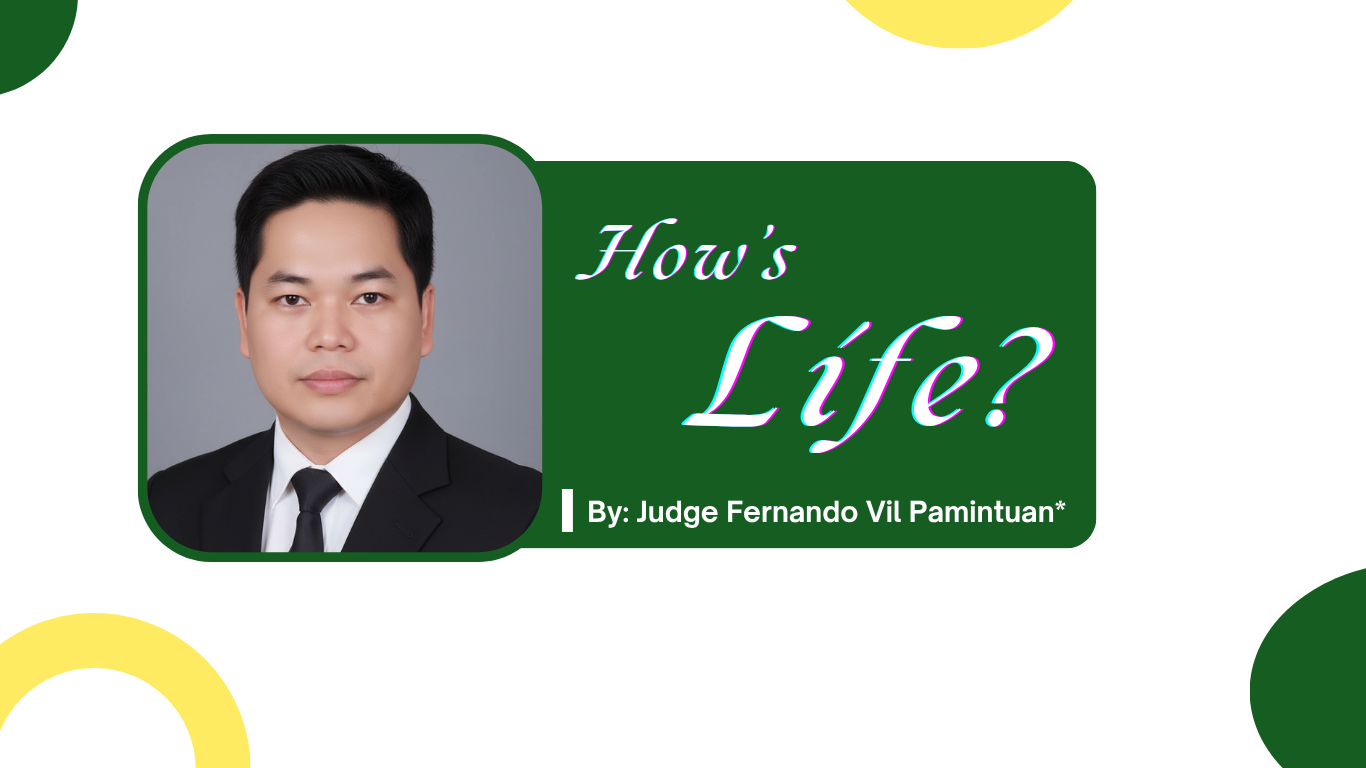Hello, Friend! How’s Life? For the past weeks, so much of the news and banner- stories are about the flood control projects (no flood control, no project). Congressional investigations, right and left, of the Senate and House of Representatives. Names of congressmen and senators are dragged in “gory” details, not in glory. If the charges and accusations were true what had become to these politicians, contractors, public officials, and cohorts real Crocodiles (“Buwaya”) of government funds taken from the taxes of our poor countrymen? What had become to our government of the people, by the people, and for the people.
What had become of the predominantly religious Catholic people — had they become dishonest and corrupt race? What had become to our political leaders from the President, Senators, Congressmen, LGU leaders and other public officials that these graft and corrupt practices would happen all over the Philippines? Is corruption only in flood control projects? How about the other public works projects like: school buildings, roads and bridges, multi-purpose halls and health centers, barangay halls, municipal and provincial buildings, justice halls, and parks? Are their construction in order above-board in terms of actual cost and accounting? Were they completed, or just like the ghost flood control projects? If completed, were the materials substandard? Too many questions really could be asked.
Lately, the South Korean government announced that it would not be extending a loan to the Philippine government for construction of bridges and railways for the loan money could be corrupted and just waste of money. Though the Philippine government denied any application for said loan.
President BBM has created an investigative commission on infrastructure headed by a retired Justice of the Supreme Court. Its principal function is to find out what are these corrupt and ghost flood control projects, and who are the people behind it from the senators, congressmen, DPWH officials, contractors, other public officials, and cohorts who pocketed government funds for these projects. The Senate Blue Ribbon Committee has confirmed that only 40% of the total allotment for a project goes to the real project (hence, substandard material). The 60% of the allotment goes to the commission of the corrupt public officials and contractors. Even a contractor admitted in congressional hearing that this was the corrupt system, and contractors could not do anything to correct it, otherwise, they would not be awarded the contract, or proceed to work on the project.
Such is the corrupt and evil system in the flood control projects. Administrative cases were filed against DPWH engineers engineer up to the Ombudsman. The resignation of then DPWH Sec. was accepted, and House Speaker resigned.
The House of Representatives announced it would stop investigation, once the investigation commission would begin its work. The Senate would continue side by side with the commission.
The probe and investigation must continue not only with initial provinces of Bulacan and Oriental Mindoro. It must cover the entire Philippines which is now tagged in international news as corrupt country.
To think that this author, as attorney-delegate to the Academy of American and International Law, Dallas, Texas, USA, June 18, 1996, for the Court of Appeals and Supreme Court, defended the Philippines in the assembly of international students, when the Lecturer from Univ. of Hawaii, USA, singled out the Philippines as a corrupt country in Asia, so that Legal Arbitration could not succeed. This author stood up during the open forum that it’s unfair for him to single out my beloved country Philippines (I was wearing barong tagalog), as corrupt country, and where are his data and research regarding this corruption charge. The Lecturer Professor corrected himself in his answer that he did not mean to single out the Philippines as corrupt, and he apologized. In 1996, I defended the Philippines, rightly. Now, in 2025, can I still defend our country on corruption issue honestly?
*Former Palawan State Scholar
